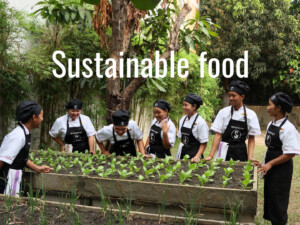Taming the beautiful monster: What ‘critical tourism studies’ means to me

Some observers of the ‘culture wars’ in the west will be suspicious of the word ‘critical’ in academic contexts due to controversial ‘critical theory’ and its influence. In this “Good Tourism” Insight, Meghan L Muldoon explains what ‘critical tourism studies’ means to her. (And can a critical tourism scholar love travelling? Dr Muldoon does.)
[Thanks to Joseph M Cheer for inviting Dr Muldoon to write a “GT” Insight.]
Tourism is a beautiful monster. So beautiful that even me, a critical tourism scholar interrogating its beastliness, cannot wait to sprint down the tarmac to board my next flight.
Hypocritical, you might suggest. Not at all.
What is critical tourism studies?
Drs Annette Pritchard, Nigel Morgan, and Irena Ateljevic (along with Candice Harris) founded the Critical Tourism Studies (CTS) network in 2005. They introduced the concept of ‘hopeful tourism’.
As many tourism scholars did (and do), these pioneers felt isolated in their respective schools, where tourism research is often focused on managerial and marketing concerns rather than with issues related to tourism’s fairness, environmental impact, exploitative working conditions, and gender imbalances.
The inaugural conference of the CTS network brought together like-minded people from around the world who were asking the same questions that The “Good Tourism” Blog asks, but often in seeming isolation. Together they created the critical tourism studies network where scholars can come together to ask not how we do more tourism, but how we do better tourism.
Tourism, the beautiful monster that needs taming
Tourism is (was?) the largest industry in the world, creating one out of every 11 jobs globally pre-pandemic. In 2019, tourism contributed US$ 1.9 trillion directly to the global economy. More importantly, virtually every person reading this will have had some experience being a tourist (and may or may not be more likely to refer to themselves as a ‘traveller’, but that’s a whole other issue).
As I write this in March 2021, myself and everyone I know is being driven to distraction by our inability to travel. Travel provides us with a sense of identity, a sense of accomplishment. It creates memories that last a lifetime, photos that get us through the dark days of winter, and it reminds us just how spectacular our planet is. To us individual tourists, tourism is much more than a dry definition; ‘the movement of a person from A to B for a period of time of no more than a year’.
However, as my friend Dr Kellee Caton reminds us, tourism is morally loaded territory. Tourism creates jobs and revenues, yes, and often in areas that have little other recourse for income generation. But many of those jobs are ill-paying and place many workers, women especially, in vulnerable positions.
Also see Karen Simmonds’ “GT” Insight
“Women’s travel & tourism livelihoods matter too: What I’m doing about it”
Also: Cultures and peoples become exploited and commodified. Beautiful beaches and ancient cities become overrun by people seeking that all-important photo to post to social media. And fragile island ecosystems find themselves on the brink of environmental catastrophe due to garbage, water consumption, and the provision of non-native foods that visitors demand.
By now we are all aware of the carbon produced by long distance air travel, leading to catastrophic climate change. Less well known is the plight of village women in Bali, Indonesia who find it more and more difficult to acquire the daily water they need due to it being consumed in massive quantities by nearby resorts.
When we lie on the splendid beaches of the Caribbean, do we wonder about the livelihoods of the people who once lived and fished there? Sure, they might now be serving you your favourite cocktail with a smile, but can that really be considered ‘development’?
I’m not trying to be a buzz kill — and, believe me, I cannot wait for my next flight, whenever that may be — but these are morally-fraught issues, and they bear considering.
Constructive criticism
Tourism presents massive challenges, including the aforementioned environmental degradation, but also sexual exploitation, overcrowding, and cultural conflicts, as well as many less visible challenges and ethical conundrums that have no easy answers.
Those of us who consider ourselves critical tourism scholars grapple with these thorny questions in order to inspire a tourism that benefits all of its stakeholders.
Being critical of tourism does not mean wishing for an end to tourism or believing that only one sort of tourism should exist. Rather, it entails interrogating existing practices and structures that can make tourism oppressive, sexist, exploitative, polluting, and a burden on local people and their environments. (If you want to see what I mean, there is an excellent documentary called Still Strangers by Elisa Banal-Juaneda, which documents the day-to-day life of the residents of Mallorca, Spain. Until quite recently the busy party town was a quiet fishing village.)
Also see Jim Butcher’s “GT” Insights “Tourism’s democratic deficit” and “Why tourism degrowth just won’t do after COVID-19”
Tourism’s a sensitive beast
The beautiful monster is also highly vulnerable to shocks — it’s easily scared — which makes travel & tourism an industry that cannot even be relied upon for economic sustainability. For example, tourism plummeted in Nepal in the aftermath of an earthquake in 2015, and terrorist attacks that same year left the Egyptian resort city of Sharm El Sheikh a ghost town for a while.
And now the beautiful monster is in lockdown as we struggle to overcome COVID-19, the deadliest global pandemic in over a century.
Canada is a wealthy country with a varied economy. As a nation it can survive tourism arrivals plunging 95%, as was the case in December 2020 compared the previous year. But what does this pandemic mean for nations like Antigua and Aruba, whose economies have been 80% reliant on tourism? What are these countries going to do to recover?
Also see Phoebe Everingham’s “GT” Insight “Travel & tourism’s ‘critical’ rethink and its imperative shift to circular economics”
Ask more questions
As stories spread — some more fantasy than factual — about the environmental recovery being witnessed in many parts of the world as a result of reduced travel in 2020, it bears asking: How much harm is being done as a result of our quest for leisure and adventure?
I don’t have the answers. But what I learned from township residents in South Africa, while doing my PhD research, is that your impacts as a tourist often go well beyond what you may imagine, and in many surprising ways.
My suggestion would be, whether you are a guest or the general manager, leave your resort to find out more. Whether you are an airline passenger or that airline’s CEO, talk to people at your destination. Ask questions about where your money is going; about what impacts your business is having.
This pandemic has given us an opportunity to pause and reflect on the world that we want to be a part of in 2021 and beyond. Asking critical questions about tourism — and listening to the answers — is central to creating the world that we all want to be a part of.
Yes, tourism is a beautiful monster. And while I am as aware as anyone that the industry can and does cause damage and harm, I cannot wait to board my next flight.
What do you think? Share a short anecdote or comment below. Or write a deeper “GT” Insight. The “Good Tourism” Blog welcomes diversity of opinion and perspective about travel & tourism because travel & tourism is everyone’s business.
Featured image (top of post): Dragon’s eye. By Victoria_Borodinova (CC0) via Pixabay.
About the author

Meghan Muldoon is an assistant professor in the School of Community Resources & Development at Arizona State University now working at Hainan University — Arizona State University Joint International Tourism College in Hainan, China.
Dr Muldoon obtained her PhD from the Department of Recreation & Leisure Studies at the University of Waterloo, Ontario, Canada. Her research interests include liminal touristic encounters, postcolonialism, tourism and poverty, feminisms, and arts-based methodologies. A qualitative researcher with a growing international reputation in the field of critical tourism studies, Meghan has passion for travel, camping, and crossword puzzles.




![Taming the beautiful monster: What 'critical tourism studies' means to me 6 Professor Valeria Minghetti: "[B]e curious. Never stop asking yourself questions. Curiosity and the desire to find solutions is what makes a difference ..."](https://www.goodtourismblog.com/wp-content/uploads/2024/05/Professor-Valeria-Minghetti-300x225.jpg)
